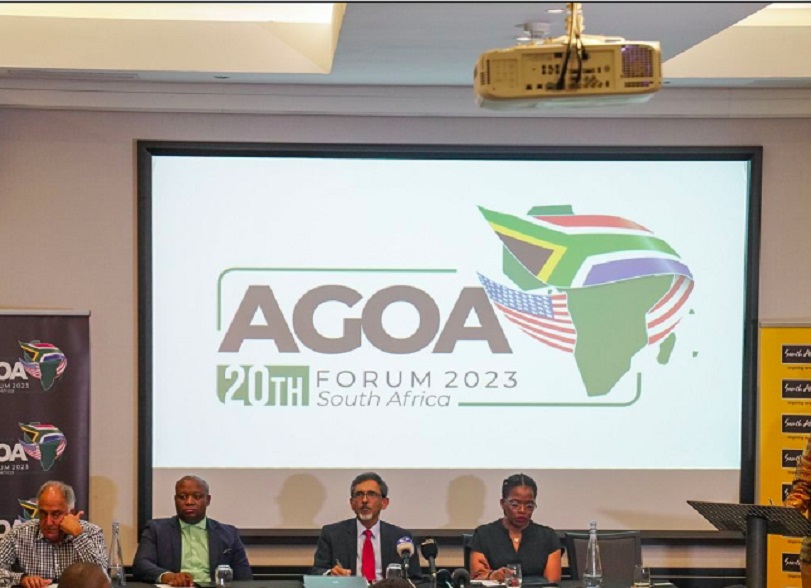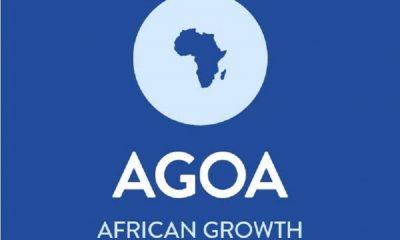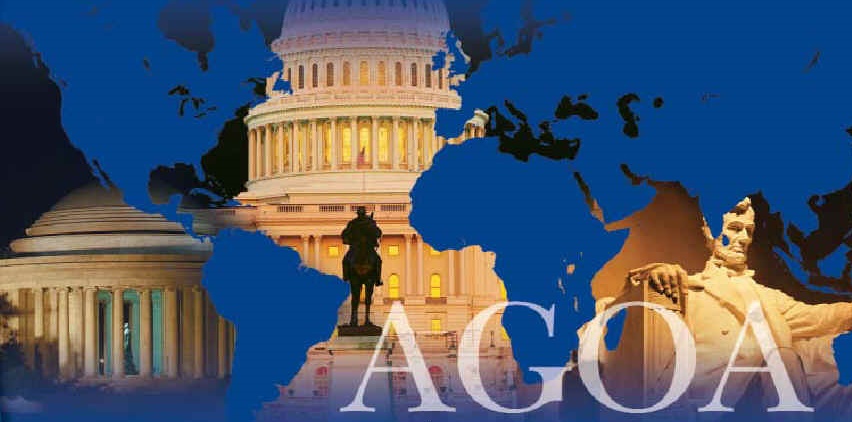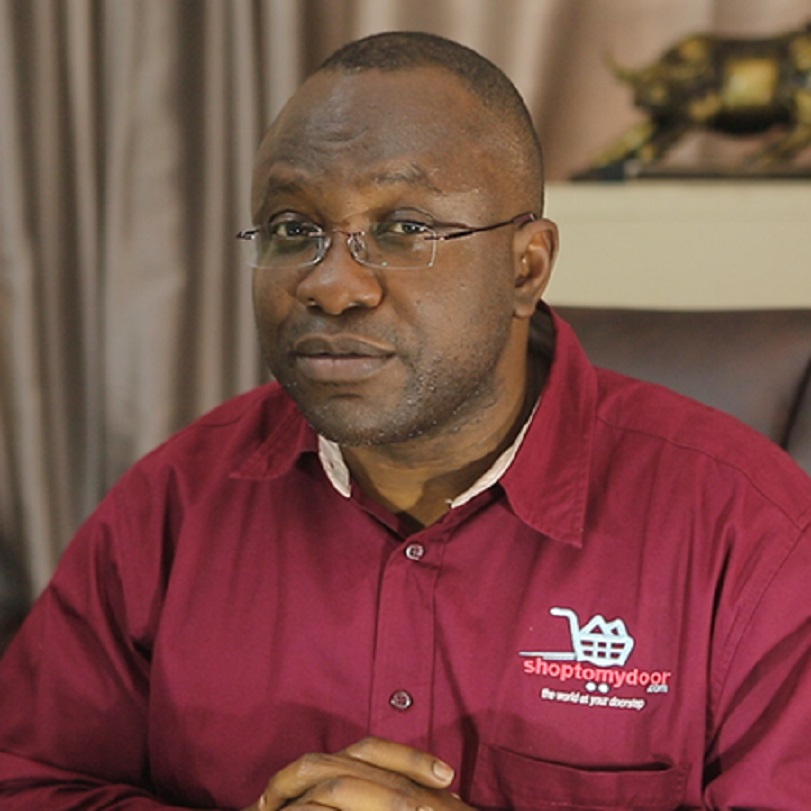World
South Africa’s AGOA Forum Aims at Strengthening US-Africa Trade Relations

By Kestér Kenn Klomegâh
South Africa prepares to host the African Growth Opportunity Act (AGOA) forum to review critical challenges and obstacles adversely impacting trade opportunities and economic cooperation between the United States and Africa. The United States first introduced the African Growth and Opportunity Act (AGOA) in 2000. It is the 20th AGOA forum scheduled from November 2 to 4 in Johannesburg, South Africa.
The AGOA Trade and Economic Cooperation Forum seeks to expand and deepen trade and investment relationships between the United States and Sub-Saharan Africa. It also encourages regional integration and further reaffirms Africa’s position as a capable economic partner for the world. It aims to promote economic growth, reduce poverty and foster a stronger trade partnership between the United States and African countries.
The Johannesburg forum will also be a follow-up on some of the business pledges taken during the mid-December African leaders summit in Washington. At that meeting, US President Joe Biden allocated $55 billion for various investment projects across Africa. The State Department reports indicated that African countries are looking forward to strengthening trade relations. The White House plans to offer new favourable conditions as well as extend or renew the trade partnership which expires in September 2025.
As well known, AGOA gives eligible sub-Saharan African countries duty-free access to the United States market for more than 1,800 products and simultaneously creates grounds for trade and commercial services. The majority of African governments and industry groups are pushing for an early 10-year extension without changes in order to reassure business and new investors who might have concerns over AGOA’s future.
South Africa is working to secure renewal and extension of AGOA, including through direct engagement between government and business representatives, as well as with members of the US Senate and Congress across party-political lines. During a recent parliamentary briefing, Minister of Trade, Industry and Competition, Ebrahim Patel, told Members of Parliament that South Africa’s participation in AGOA benefits neighbouring countries through shared value chains.
Reports indicated that U.S. President Joe Biden would terminate the participation of Gabon, Niger, Uganda and the Central African Republic in the African Growth and Opportunity Act (AGOA) trade program.
Biden said he was taking the step because of “gross violations” of internationally recognized human rights by the Central African Republic and Uganda. He also cited Niger and Gabon’s failure to establish or make continual progress toward the protection of political pluralism and the rule of law. Burkina Faso, Mali and Guinea have all previously been expelled from AGOA after military coups in those countries.
“Despite intensive engagement between the United States and the Central African Republic, Gabon, Niger, and Uganda, these countries have failed to address United States concerns about their non-compliance with the AGOA eligibility criteria,” Biden said in an official letter to the speaker of the U.S. House of Representatives.
Their expulsion from the AGOA trade program is set to take effect from the start of next year (2024) and is likely to impact their economies, as AGOA has been credited with promoting exports, economic growth and job creation among participating countries.
The Democratic Alliance, South Africa’s main opposition party, has waged its own campaign for South Africa to continue participating in AGOA and warned that its exclusion would have a devastating impact on the economy, with the vehicle manufacturing industry among those that would be badly affected.
“Should South Africa’s access to AGOA be revoked as a consequence of its allegiance to Russia, 112,000 jobs in the automotive sector and 435 billion ($23 billion) in automotive trade could be wiped out,” the party said in a statement. “South Africans need to realize that our country’s jobs and the security of our economy are intrinsically linked to trade founded on global alliances.”
South Africa lobbies to retain preferential access to the U.S. market, so the majority of African countries. A number of high-powered delegations, in a bid to defuse tensions over its relations with Russia, have visited Washington. Finance Minister Enoch Godongwana has spoken with US lawmakers and heavily lobbied for South Africa to retain its eligibility to export goods duty-free to the US under the African Growth and Opportunity Act.
The United States currently seeks to build on its existing economic and trade relations with Africa, especially in this fast-changing geopolitical situation. Without much criticism, AGOA has helped during these years in supporting a fledgling manufacturing sector in industrial parks, it has had a meaningful impact in sectors like Ethiopia’s and Kenya’s textile industry and South Africa’s automotive industry.
The United States has been gearing up so as not to lose its economic influence across Africa. South Africa’s trade amounted to an estimated $25.5 billion in 2022. Exports were $9.3 billion, imports were $16.2 billion. The U.S. goods and services trade deficit with South Africa was $6.9 billion in 2022.
Research also shows that since 2021, the U.S. Government has helped close more than 800 two-way trade and investment deals across 47 African countries for a total estimated value of over $18 billion, and the U.S. private sector has closed investment deals in Africa valued at $8.6 billion. U.S. goods and services traded with Africa totalled $83.6 billion in 2021.
U.S. Trade Representative Katherine Tai, ahead of the Africa Growth Opportunity Act forum in Johannesburg, has expressed optimism that AGOA, which provides preferential trade arrangements for sub-Saharan African countries with the United States, would be renewed by the Congress. And of course, members of the U.S. Congress want to see AGOA benefits shared widely and used to create good-paying jobs across Sub-Saharan Africa.
At previous high-level engagements, there was consensus to extend AGOA beyond 2025. The suggestion has been tabled before the US Administration. United States Trade Representative, Ambassador Katherine Tai, is committed to robust trade and economic collaboration with Sub-Saharan Africa.
During one of the meetings, Ambassador Katherine Tai, the African Ministers, and the Africa Group of Ambassadors underscored the following:
* An extension of AGOA for at least ten years with the inclusion of African countries.
* The importance of Africa speaking with One Voice in all US-Africa trade and investment engagements.
* Enhanced commercial diplomacy between the US and Africa. There was also agreement that South Africa would host the next AGOA forum this year 2023.
Most United States enterprises are banking to explore the single continental market, the African Continental Free Trade Agreement (AfCFTA). As a corporate project initiated by the African Union (AU), it has the potential to unite more than 1.4 billion people in a $2.5 trillion economic bloc. It has the potential to generate a range of benefits through supporting trade creation, structural transformation, productive employment and poverty reduction. The AfCFTA opens up more opportunities for both local African and foreign investors from around the world.
Corporate Council on Africa, which is a leading reputable American business association, told me that the main focus is to increase US-Africa trade and investment. It further characterized the forum as a platform to highlight the progress made across sectors of Africa’s economy, including expanding opportunities in agriculture, industry and manufacturing, technology, health, agribusiness, tourism and financial services.
Corporate Council on Africa has assisted the government in contracting deals closed more than 800 two-way trade and investment deals across 47 African countries for a total estimated value of over $18 billion, and the American private sector has closed investment deals in the continent valued at $8.6 billion since 2021.
The African Union (AU) spearheads Africa’s development and integration in close collaboration with the individual countries on the continent, with the Regional Economic Communities and African citizens. With its vision to accelerate progress towards an integrated Africa, it works closely with the United States. Most importantly, the United States has more room for manoeuvring with its institutional instruments. It now works closely with AU’s AfCFTA. On the other side, Africans flexibly visit the United States more often than anywhere else in the world.
The AU has its representative office facilitating and coordinating activities and business interests in Washington. The White House and the Biden-Harris administration have been prioritizing comprehensive multifaceted relationships with various countries across Africa. The Biden-Harris Administration is committed to strengthening US-Africa trade and commercial relations and engaging Congress on the next steps for AGOA.
World
Iranian Supreme Leader Ali Khamenei Dies After Air Strikes

By Dipo Olowookere
Iranian Supreme Leader, Mr Ayatollah Ali Khamenei, has died after coordinated airstrikes carried out by the United States and Israel on Tehran on Saturday morning.
His death was confirmed on Sunday morning by Iranian state media, which also disclosed that his daughter and grandchild were among those killed in the bombardment, which destroyed his compound.
Mr Khamenei was killed during a meeting with top leaders of the Middle East country yesterday, including the Defence Minister Amir Nasirzadeh and Revolutionary Guard commander Mohammad Pakpour, who reportedly died too.
His elimination has sparked mixed reactions, with some Iranians on the streets celebrating his demise, and others condemning the joint air strikes.
The President of the United States, Mr Donald Trump, described the late Iranian leader as “one of the most evil people in history,” expressing satisfaction at the action, which he said was “successful,” as it represented justice for both Iranians and Americans.
Meanwhile, Tehran has vowed to further respond to the attacks after initially firing missiles at six neighbours, including Qatar, Saudi Arabia, Kuwait, UAE, Bahrain, and Jordan.
Flight operations in the region have been disrupted because of the retaliatory action of Iran over the weekend, though most of the missiles were intercepted.
World
AfBD, AU Renew Call for Visa-Free Travel to Boost African Economic Growth

By Adedapo Adesanya
The African Development Bank (AfDB) and the African Union have renewed their push for visa-free travel to accelerate Africa’s economic transformation.
The call was reinforced at a High-Level Symposium on Advancing a Visa-Free Africa for Economic Prosperity, where African policymakers, business leaders, and development institutions examined the need for visa-free travel across the continent.
The consensus described the free movement of people as essential to unlocking Africa’s economic transformation under the African Continental Free Trade Area (AfCFTA).
The symposium was co-convened by AfDB and the African Union Commission on the margins of the 39th African Union Summit of Heads of State and Government in Addis Ababa.
The participants framed mobility as the missing link in Africa’s integration agenda, arguing that while tariffs are falling under AfCFTA, restrictive visa regimes continue to limit trade in services, investment flows, tourism, and labour mobility.
On his part, Mr Alex Mubiru, Director General for Eastern Africa at the African Development Bank Group, said that visa-free travel, interoperable digital systems, and integrated markets are practical enablers of enterprise, innovation, and regional value chains to translate policy ambitions into economic activity.
“The evidence is clear. The economics support openness. The human story demands it,” he told participants, urging countries to move from incremental reforms to “transformative change.”
Ms Amma A. Twum-Amoah, Commissioner for Health, Humanitarian Affairs and Social Development at the African Union Commission, called for faster implementation of existing continental frameworks.
She described visa openness as a strategic lever for deepening regional markets and enhancing collective responses to economic and humanitarian crises.
Former AU Commission Chairperson, Ms Nkosazana Dlamini-Zuma, reiterated that free movement is central to the African Union’s long-term development blueprint, Agenda 2063.
“If we accept that we are Africans, then we must be able to move freely across our continent,” she said, urging member states to operationalise initiatives such as the African Passport and the Free Movement of Persons Protocol.
Ghana’s Trade and Industry Minister, Mrs Elizabeth Ofosu-Adjare, shared her country’s experience as an early adopter of open visa policies for African travellers, citing increased business travel, tourism, and investor interest as early dividends of greater openness.
The symposium also reviewed findings from the latest Africa Visa Openness Index, which shows that more than half of intra-African travel still requires visas before departure – seen by participants as a significant drag on intra-continental commerce.
Mr Mesfin Bekele, Chief Executive Officer of Ethiopian Airlines, called for full implementation of the Single African Air Transport Market (SAATM), saying aviation connectivity and visa liberalisation must advance together to enable seamless travel.
Regional representatives, including Mr Elias Magosi, Executive Secretary of the Southern Africa Development Community, emphasised the importance of building trust through border management and digital information-sharing systems.
Ms Gabby Otchere Darko, Executive Chairman of the Africa Prosperity Network, urged governments to support the “Make Africa Borderless Now” campaign, while tourism campaigner Ras Mubarak called for more ratifications of the AU Free Movement of Persons protocol.
Participants concluded that achieving a visa-free Africa will require aligning migration policies, digital identity systems, and border infrastructure, alongside sustained political commitment.
World
Nigeria Exploring Economic Potential in South America, Particularly Brazil

By Kestér Kenn Klomegâh
In this interview, Uche Uzoigwe, Secretary-General of NIDOA-Brazil, discusses the economic potential in South America, particularly Brazil, and investment incentives for Brazilian corporate partners for the Federal Republic of Nigeria (FRN). Follow the discussion here:
How would you assess the economic potential in the South American region, particularly Brazil, for the Federal Republic of Nigeria? What investment incentives does Nigeria have for potential corporate partners from Brazil?
As the Secretary of NIDOA Brazil, my response to the questions regarding the economic potentials in South America, particularly Brazil, and investment incentives for Brazilian corporate partners would be as follows:
Brazil, as the largest economy in South America, presents significant opportunities for the Federal Republic of Nigeria. The country’s diverse economy is characterised by key sectors such as agriculture, mining, energy, and technology. Here are some factors to consider:
- Natural Resources: Brazil is rich in natural resources like iron ore, soybeans, and biofuels, which can be beneficial to Nigeria in terms of trade and resource exchange.
- Growing Agricultural Sector: With a well-established agricultural sector, Brazil offers potential collaboration in agri-tech and food security initiatives, which align with Nigeria’s goals for agricultural development.
- Market Size: Brazil boasts a large consumer market with a growing middle class. This represents opportunities for Nigerian businesses looking to export goods and services to new markets.
- Investment in Infrastructure: Brazil has made significant investments in infrastructure, which could create opportunities for Nigerian firms in construction, engineering, and technology sectors.
- Cultural and Economic Ties: There are historical and cultural ties between Nigeria and Brazil, especially considering the African diaspora in Brazil. This can facilitate easier business partnerships and collaborations.
In terms of investment incentives for potential corporate partners from Brazil, Nigeria offers several attractive incentives for Brazilian corporate partners, including:
- Tax Incentives: Various tax holidays and concessions are available under the Nigerian government’s investment promotion laws, particularly in key sectors like agriculture, manufacturing, and technology.
- Repatriation of Profits: Brazil-based companies investing in Nigeria can repatriate profits without restrictions, thus enhancing their financial viability.
- Access to the African Market: Investment in Nigeria allows Brazilian companies to access the broader African market, benefiting from Nigeria’s membership in regional trade agreements such as ECOWAS.
- Free Trade Zones: Nigeria has established free trade zones that offer companies the chance to operate with reduced tariffs and fewer regulatory burdens.
- Support for Innovation: The Nigerian government encourages innovation and technology transfer, making it attractive for Brazilian firms in the tech sector to collaborate, particularly in fintech and agriculture technology.
- Collaborative Ventures: Opportunities exist for joint ventures with local firms, leveraging local knowledge and networks to navigate the business landscape effectively.
In conclusion, fostering a collaborative relationship between Nigeria and Brazil can unlock numerous economic opportunities, leading to mutual growth and development in various sectors. We welcome potential Brazilian investors to explore these opportunities and contribute to our shared economic goals.
In terms of this economic cooperation and trade, what would you say are the current practical achievements, with supporting strategies and systemic engagement from NIDOA?
As the Secretary of NIDOA Brazil, I would highlight the current practical achievements in economic cooperation and trade between Nigeria and Brazil, alongside the supporting strategies and systemic engagement from NIDOA.
Here are some key points:
Current Practical Achievements
- Increased Bilateral Trade: There has been a notable increase in bilateral trade volume between Nigeria and Brazil, particularly in sectors such as agriculture, textiles, and technology. Recent trade agreements and discussions have facilitated smoother trade relations.
- Joint Ventures and Partnerships: Successful joint ventures have been established between Brazilian and Nigerian companies, particularly in agriculture (e.g., collaboration in soybean production and agricultural technology) and energy (renewables, oil, and gas), demonstrating commitment to mutual development.
- Investment in Infrastructure Development: Brazilian construction firms have been involved in key infrastructure projects in Nigeria, contributing to building roads, bridges, and facilities that enhance connectivity and economic activity.
- Cultural and Educational Exchange Programs: Programs facilitating educational exchange and cultural cooperation have led to strengthened ties. Brazilian universities have partnered with Nigerian institutions to promote knowledge transfer in various fields, including science, technology, and arts.
Supporting Strategies
- Strategic Trade Dialogue: NIDOA has initiated regular dialogues between trade ministries of both nations to discuss trade barriers, potential markets, and cooperative opportunities, ensuring both countries are aligned in their economic goals.
- Investment Promotion Initiatives: Targeted initiatives have been established to promote Brazil as an investment destination for Nigerian businesses and vice versa. This includes showcasing success stories at international trade fairs and business forums.
- Capacity Building and Technical Assistance: NIDOA has offered capacity-building programs focused on enhancing Nigeria’s capabilities in agriculture and technology, leveraging Brazil’s expertise and sustainable practices.
- Policy Advocacy: Continuous advocacy for favourable trade policies has been a key focus for NIDOA, working to reduce tariffs and promote economic reforms that facilitate investment and trade flows.
Systemic Engagement
- Public-Private Partnerships (PPPs): Engaging the private sector through PPPs has been essential in mobilising resources for development projects. NIDOA has actively facilitated partnerships that leverage both public and private investments.
- Trade Missions and Business Delegations: Organised trade missions to Brazil for Nigerian businesses and vice versa, allowing for direct engagement with potential partners, fostering trust and opening new channels for trade.
- Monitoring and Evaluation: NIDOA implements a rigorous monitoring and evaluation framework to assess the impact of various initiatives and make necessary adjustments to strategies, ensuring effectiveness in achieving economic cooperation goals.
Through these practical achievements, supporting strategies, and systemic engagement, NIDOA continues to play a pivotal role in enhancing economic cooperation and trade between Nigeria and Brazil. By fostering collaboration and leveraging shared resources, we aim to create a sustainable and mutually beneficial economic environment that promotes growth for both nations.
Do you think the changing geopolitical situation poses a number of challenges to connecting businesses in the region with Nigeria, and how do you overcome them in the activities of NIDOA?
The changing geopolitical situation indeed poses several challenges for connecting businesses in the South American region, particularly Brazil, with Nigeria. These challenges include trade tensions, shifting alliances, currency fluctuations, and varying regulatory environments. Below, I will outline some of the specific challenges and how NIDOA works to overcome them:
Current Challenges
- No Direct Flights: This challenge is obviously explicit. Once direct flights between Brazil and Nigeria become active, and hopefully this year, a much better understanding and engagement will follow suit.
- Trade Restrictions and Tariffs: Increasing trade protectionism in various regions can lead to higher tariffs and trade barriers that hinder the movement of goods between Brazil and Nigeria.
- Currency Volatility: Fluctuations in the value of currencies can complicate trade agreements, pricing strategies, and overall financial planning for businesses operating in both Brazil and Nigeria.
- Different regulatory frameworks and compliance requirements in both countries can create challenges for businesses aiming to navigate these systems efficiently.
- Supply Chain Disruptions: Changes in global supply chains due to geopolitical factors may disrupt established networks, impacting businesses relying on imports and exports between the two nations.
Overcoming Challenges through NIDOA.
NIDOA actively engages in discussions with both the Brazilian and Nigerian governments to advocate for favourable trade policies and agreements that reduce tariffs and improve trade conditions. This year in October, NIDOA BRAZIL holds its TRADE FAIR in São Paulo, Brazil.
What are the popular sentiments among the Nigerians in the South American diaspora? As the Secretary-General of the NIDOA, what are your suggestions relating to assimilation and integration, and of course, future perspectives for the Nigerian diaspora?
As the Secretary-General of NIDOA, I recognise the importance of understanding the sentiments among Nigerians in the South American diaspora, particularly in Brazil.
Many Nigerians in the diaspora take pride in their cultural roots, celebrating their heritage through festivals, music, dance, and culinary traditions. This cultural expression fosters a sense of community and belonging.
While many individuals embrace their new environments, they often face challenges related to cultural differences, language barriers, and social integration, which can lead to feelings of isolation.
Many express optimism about opportunities in education, business, and cultural exchange, viewing their presence in South America as a chance to expand their horizons and contribute to economic activities both locally and back in Nigeria.
Sentiments regarding acceptance vary; while some Nigerians experience warmth and hospitality, others encounter prejudice or discrimination, which can impact their overall experience in the host country. NIDOA BRAZIL has encouraged the formation of community organisations that promote networking, cultural exchange, and social events to foster a sense of belonging and support among Nigerians in the diaspora. There are currently two forums with over a thousand Nigerian members.
Cultural Education and Awareness Programs: NIDOA BRAZIL organises cultural education programs that showcase Nigerian heritage to local communities, promoting mutual understanding and appreciation that can facilitate smoother integration.
Language and Skills Training: NIDOA BRAZIL provides language courses and skills training programs to help Nigerians, especially students in tertiary institutions, adapt to their new environment, enhancing communication and employability within the host country.
Engaging in Entrepreneurship: NIDOA BRAZIL supports the entrepreneurial spirit among Nigerians in the diaspora by facilitating access to resources, mentorship, and networks that can help them start businesses and create economic opportunities.
Through its AMBASSADOR’S CUP COMPETITION, NIDOA Brazil has engaged students of tertiary institutions in Brazil to promote business projects and initiatives that can be implemented in Nigeria.
NIDOA BRAZIL also pushes for increased tourism to Brazil since Brazil is set to become a global tourism leader in 2026, with a projected 10 million international visitors, driven by a post-pandemic rebound, enhanced air connectivity, and targeted marketing strategies.
Brazil’s tourism sector is poised for a remarkable milestone in 2026, as the country expects to welcome over 10 million international visitors—surpassing the previous record of 9.3 million in 2025. This expected surge represents an ambitious leap, nearly doubling the country’s foreign-arrival numbers within just four years, a feat driven by a combination of pent-up global demand, strategic air connectivity improvements, and a highly targeted marketing campaign.
-

 Feature/OPED6 years ago
Feature/OPED6 years agoDavos was Different this year
-
Travel/Tourism10 years ago
Lagos Seals Western Lodge Hotel In Ikorodu
-

 Showbiz3 years ago
Showbiz3 years agoEstranged Lover Releases Videos of Empress Njamah Bathing
-

 Banking8 years ago
Banking8 years agoSort Codes of GTBank Branches in Nigeria
-

 Economy3 years ago
Economy3 years agoSubsidy Removal: CNG at N130 Per Litre Cheaper Than Petrol—IPMAN
-

 Banking3 years ago
Banking3 years agoSort Codes of UBA Branches in Nigeria
-

 Banking3 years ago
Banking3 years agoFirst Bank Announces Planned Downtime
-

 Sports3 years ago
Sports3 years agoHighest Paid Nigerian Footballer – How Much Do Nigerian Footballers Earn















